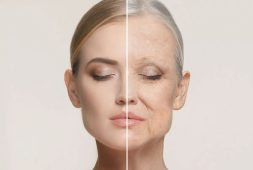
Doctors have been preaching about smoking. People who are addicted to nicotine need to kick the habit because it’s something that ages them. However, there are studies that show that smoking may not be the number one that accelerates aging. In fact, there are two other items on the list that top it.
In fact, researchers saw that loneliness and unhappiness had accelerated the aging process by as much as 1.65 years. These aren’t physical habits. In fact, these are psychological factors that may have a bigger impact on longevity. This goes beyond a wide variety of physical health issues. This is what a new study suggested.
Hence, these researchers say that you need to be around people who help you feel good about everything in your life. This may not be the first thought that comes to mind when you plan to extend your life, and it may be high time that you consider. That’s because this newest study suggested that you try and shift your focus on personal happiness and social connections. These could be the very two things that foster longevity.
In order to conduct the study, researchers looked into data on almost 12,000 adults 45 and older. These were people who participated in the China Health and Retirement Longitudinal Study. All of them were asked to provide blood samples, detailed medical histories, and information regarding their own social circumstances and mental health. The scientists then collected the data and used all of it to predict which factors might make the most impact on longevity using what they call the “aging clock,” which is a statistical model that tests their biological age instead of their chronological age.
These psychological factors that they looked closer into managed to accelerate the biological aging process by around 1.65 years. This was placed side-by-side and compared to what the usual aging process would be like for healthy individuals who did not suffer from any type physical or mental health problems. The results were noted and written down before they were published in in the journal Aging (PDF).
“Mental and psychosocial states are some of the most robust predictors of health outcomes — and quality of life,” study coauthor Manuel Faria of Stanford University said in a he made statement.
Aging also sped up in smokers and those who had a history of stroke, liver, and lung diseases. For smoking, for instance, this habit sped up the aging process by 1.25 years, which was still lower than aging and sadness.
Other factors were also checked and living in a rural area and never marrying also accelerated aging for many of them.
The aging clock that was utilized by the researchers to test which factors might make the most impact in terms of longevity wasn’t tested in real-life outcomes. Also, it must be noted that the study didn’t follow people until they passed away in order to see whether being lonely or unhappy might be the main culprit behind premature death.
Another limitation to the study was that several authors had a conflict of interest. They got their salaries from Deep Longevity, which is a company that’s developing aging clocks and publicly traded in Hong Kong. This happened while they were conducting the research.
Still, it also must be noted that several previous studies have also linked social isolation and loneliness to a higher risk of dying prematurely.
In fact, one study made that involved around 17,000 adults in the United States found that social isolation is the most common experience for those who have reached the middle age. This impacted about 17 percent of women and 21 percent of men. For both sexes, being unmarried and not participating in religious activities on a regular basis were among the main culprits when it comes to social isolation. This was linked to about a 62 percent higher risk of premature death in women and a 75 percent higher chance of a premature death in men.
Then, there’s another study that studied around 120,000 middle-aged adults from 20 different countries. They saw how social isolation was more rampant in females, elderly people, city dwellers, people with lower education levels, and people who didn’t have jobs. Generally, they saw that social isolation was linked to a 26 percent higher risk of premature death. This instance was more enhanced for those who lived in high-income countries.
There is a possibility that some of the link between social isolation and longevity depended on the underlying causes. In fact, a study of more than 35,000 elderly adults saw how social isolation was connected to a 22 percent higher chance of suffering from premature death. However, this also saw that that most of the cases had been because of advanced age and living with underlying health issues that made it more challenging for them to go out and enjoy social activities from time to time.



